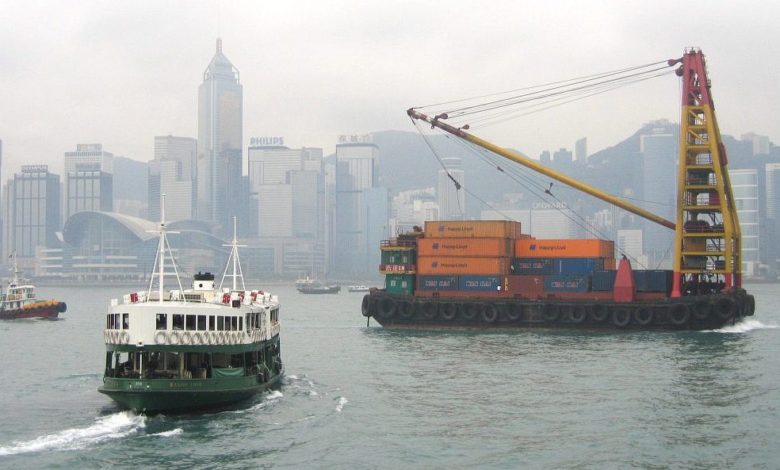Rallying call to government

Hong Kong’s shipping community reveal their wishlist to get the territory back up on the maritime map.
In compiling our debut Hong Kong magazine Splash sent out a survey to 250 of the top names in the local maritime scene to gauge the community on key local issues. The responses form quite a checklist for the local government to ponder if it genuinely wants to grow as an international shipping centre.
Among the longest replies were those from Kenneth Koo, the chairman of shipowner TCC Group.
The loss of traders such as Cargill, Bunge and Glencore to Singapore over the past decade has hurt Hong Kong hard, Koo says. “Shipping being both commodities trading and physical transport needs both in order to truly be a shipping hub,” he says, adding: “The continued migration/relocation of shipowners, charterers, traders, shipbrokers and even shipping desks of banks to Singapore has impacted Hong Kong’s position as an international maritime centre.”
Koo, like many respondents, suggested shipping needed its own ministry, something the current CY Leung administration is looking into.
Shipping currently comes under the Transport & Housing Bureau, a point picked up on by Vikrant Bhatia, the ceo of shipowner KC Maritime, who urges the local government to look at shipping as independent of transportation which clubs together aviation and land transport.
“Hong Kong is not identified as ‘Asia’ from a shipping standpoint, Singapore has assumed that mantle,” TCC’s Koo says, adding that Hong Kong has also lost its identity as a dry bulk hub.
“Ship finance banks without an Asian presence have automatically looked to Singapore as their Asian regional headquarters while major shipbrokers with a historical Hong Kong presence are also expanding in Singapore,” Koo continues. “These are all very tangible alarm bells that should make it very easy for the Hong Kong government to reflect on what went wrong from a macro policy standpoint. We need to reflect on what we lost, why and, fundamentally, whether we want to get what was Hong Kong’s back.”
Also not short of a strong opinion on Hong Kong’s future as a shipping hub is Tim Huxley, the founder of Mandarin Shipping and ceo of Wah Kwong.
“Singapore thrives because of its system of government; Hong Kong thrives in spite of ours,” he says. Huxley, like many other respondents, calls for more double taxation agreements.
“We can run our businesses without incentives,” he says, “but make Hong Kong attractive to foreign companies and they will come.”
Michael Nagler, who runs Noble Chartering, is following a long line of established Hong Kong names in relocating to Singapore. More than 80% of those polled in our survey admitted Singapore would be their place of work if it was not Hong Kong. Nagler is shifting Noble Chartering to the Lion Republic early next year. Rent there, he says, is half of what it is in Hong Kong.
“The government in Singapore has done a very good job in attracting foreign companies,” Nagler says. “The government of Hong Kong should be on a road trip around the world to attract foreign companies,” he adds.
Hong Kong has always had a predominant position so far as shipping is concerned but other Asian jurisdictions principally Singapore receive substantially more government backing and assistance to promote their own jurisdiction, notes veteran lawyer Chris Howse.
“We need Hong Kong government assistance to promote Hong Kong as an arbitration centre; to secure tax advantages particularly double taxation treaties which can be a major consideration when a shipowner or a charterer or a trader considers whether to set up in business in Hong Kong. In appropriate cases incentives are needed to encourage foreign companies to set up in Hong Kong,” says the founder of law firm, Howse Williams Bowers.
Agreeing in part with this sentiment is Martin Rowe, a Hong Kong-based broker with Clarkson Platou.
“The Hong Kong government has a laissez faire stance on most legitimate commercial activity in our city which is probably the most important thing and so it would be contradictory to seek government intervention,” Rowe points out, before adding: “However, certain low hanging fruit such as mooted double taxation agreements with other major shipping centres remain unexecuted and would be useful as would a one-stop shop that allows shipping companies looking to move to HK to negotiate the thicket of different government departments such as Labour & Immigration, Inland Revenue, the Marine Department, Companies Registry and so on.”
Tax incentives for companies and people employed within the shipping sector and admission priorities for their children – in particular shipping expats – will help attract better talent and more business, suggests Kishore Rajvanshy, the managing director of shipmanager, Fleet Management.
Finally, the thoughts of the territory’s largest shipowner by fleet numbers. Mats Berglund, ceo of Pacific Basin, tells Splash: “The government should listen to and cooperate more with the very proactive Hong Kong Shipowners Association.”
Readers can access the full magazine online for free by clicking here.
